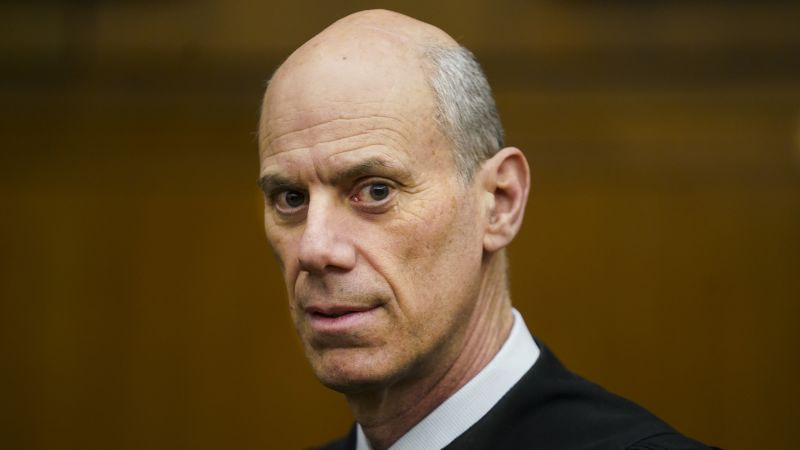The Department of Justice has recently filed a significant misconduct complaint against U.S. District Court Judge James Boasberg, highlighting a growing tension between the judicial system and the Trump administration. This formal complaint poses serious implications, marking an escalation in ongoing conflicts over various policies and legal interpretations that have reverberated throughout the nation’s courts. The move underscores the precarious position of judges who challenge or push back against the administration, a theme that has become increasingly prevalent as the political landscape shifts.
This formal complaint was reported on CNN and filed on a Monday, alleging that Judge Boasberg, who has been at the forefront of cases related to the administration’s controversial immigration policies, made remarks that undermined the judiciary’s integrity. Specifically, the allegations state that during a Judicial Conference meeting in March, Boasberg expressed concerns about President Trump’s administration disregarding court rulings, and suggested that such actions could lead to a constitutional crisis. This is particularly critical considering that the governor’s comments suggested a belief that the Trump administration would not adhere to judicial orders, a premise the complaint claims lacks foundation.
Chad Mizelle, the chief of staff to Attorney General Pamela Bondi, articulated in the complaint that Judge Boasberg attempted to influence Chief Justice John Roberts and other judges by veering from accepted discussion norms. Mizelle emphasized that evaluating the accusations made by Boasberg as inappropriate would still hinge on some basis; however, he insisted that this was further complicated by the lack of factual basis for Boasberg’s claims regarding the administration’s alleged disregard for court orders. The complaint brought forth numerous instances of Judge Boasberg’s actions in the weeks following his comments, suggesting a bias against the administration that is drawn from preconceived opinions rather than judicial neutrality.
A memorandum released by The Federalist detailed Boasberg’s discussions during that Judicial Conference, including Chief Justice Roberts’ hope that no constitutional crisis would occur as suggested by Boasberg. What followed this incident illustrates a troubling advent of tensions, with the complaint specifically asserting that the chief judge of the United States Court of Appeals for the District of Columbia Circuit, Sri Srinivasan, should refer this matter to a special investigative committee. This recommendation also includes reassignment of Boasberg’s relevant cases and potential disciplinary actions, which could range from public reprimand to impeachment considerations should willful misconduct be found.
The filing is especially notable, as it is exceedingly rare for the Justice Department to formally challenge a sitting judge—this deviates from standard practices, where disputes typically unfold within the courtroom. Furthermore, this move places further scrutiny on interactions and dialogues amongst judges, which ordinarily remain confined within the walls of judicial gatherings.
In March, the former president publicly derided Judge Boasberg, referring to him as a “Radical Left Lunatic Judge” and calling for his impeachment, a sentiment that rekindled a rare counter-statement from Chief Justice Roberts. He highlighted the fact that judicial disagreements should not ascend to calls for impeachment, reinforcing the norms of judicial impartiality and respect for the legal process. Historically, federal judges receive lifetime appointments, and impeachment processes have proven to be exceedingly rare; only 15 judges have faced impeachment since 1803, of which merely eight received convictions.
Boasberg’s judicial background shows a relatively balanced approach prior to the onset of tensions with the Trump administration. His appointment by President Barack Obama and prior nominations by President George W. Bush marked him as a jurist free of partisan bias in his prior judgments. However, Judge Boasberg later became known for his lenient rulings, including those concerning participants in the January 6 Capitol riots and other high-profile cases that implicated significant political figures like Hillary Clinton. These multifaceted elements illustrate the intricate and often contentious dynamics in play, as the separation of powers continues to be tested in modern governance.
As this situation unfolds, it raises critical questions about the state of the judiciary, the influence of political agendas on legal processes, and the enduring implications for the rule of law in an increasingly polarized environment.
This report was compiled with contributions from various authors, including CNN staff members Hannah Rabinowitz, Katelyn Polantz, Tierney Sneed, John Fritze, Marshall Cohen, and Casey Gannon.











